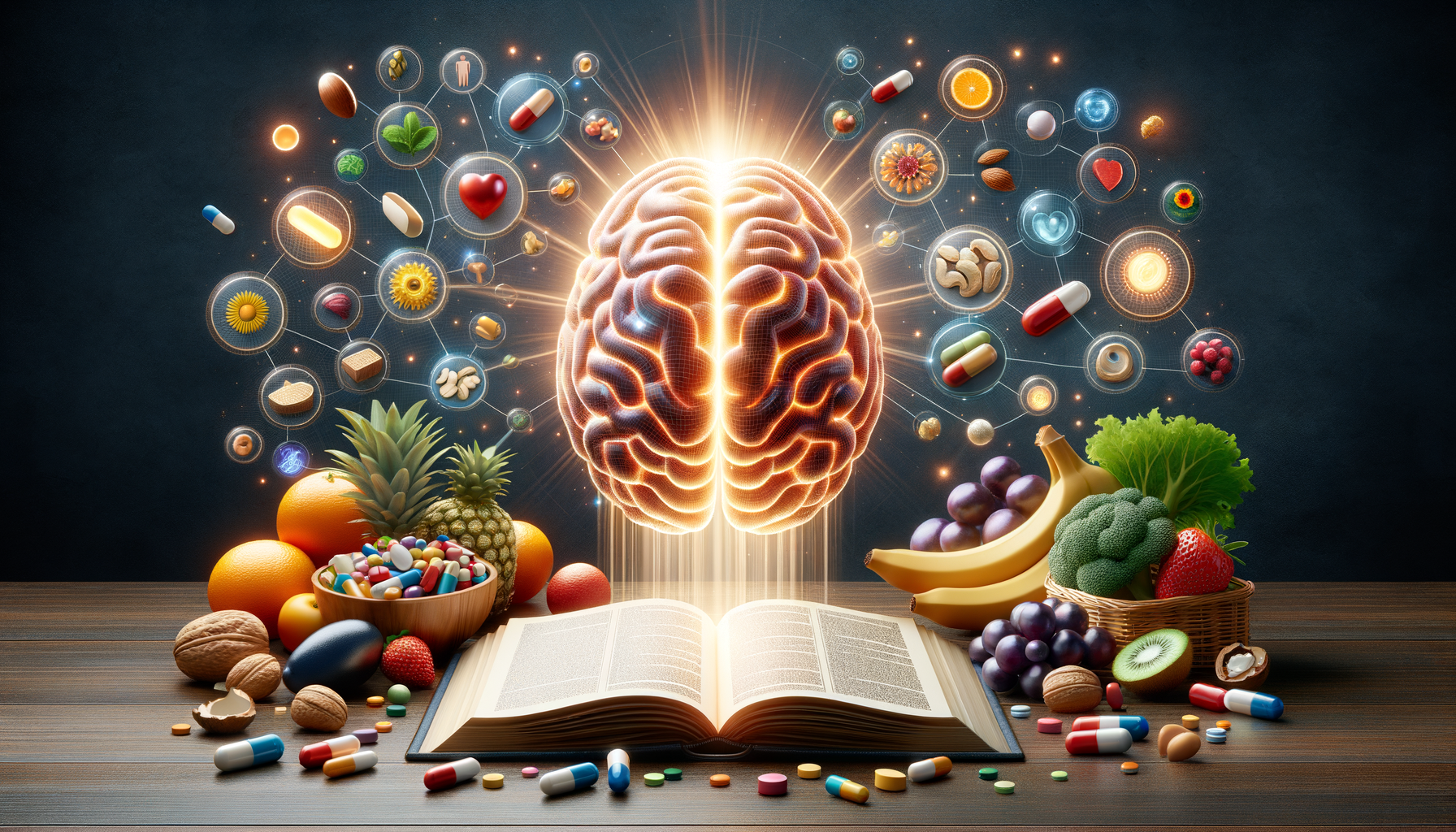The Importance of Vitamins for Brain Health
In today’s fast-paced world, maintaining optimal brain health is more important than ever. Whether you’re a student striving for academic excellence or an adult juggling multiple responsibilities, the need for mental clarity and sharp memory is universal. Vitamins play a crucial role in supporting brain function, offering a natural way to enhance cognitive abilities, reduce brain fog, and improve memory. This article explores the significance of vitamins in promoting brain health and how they can be effectively incorporated into daily routines.
Vitamins are essential nutrients that our bodies need to function correctly. They not only support physical health but also play a vital role in mental well-being. Among the myriad of benefits, certain vitamins are renowned for their ability to boost brain health:
- Vitamin B12: Known for its role in maintaining nerve health and producing DNA, Vitamin B12 is crucial for brain function. It helps prevent memory loss and can improve mood.
- Vitamin D: Often referred to as the “sunshine vitamin,” it supports brain health by enhancing mood and protecting against cognitive decline.
- Vitamin E: An antioxidant that helps protect brain cells from oxidative stress, which is linked to memory loss.
Incorporating these vitamins into your diet can significantly contribute to improved cognitive function and overall brain health.
Vitamins for Memory Enhancement in Adults
As we age, it’s natural for our memory to experience changes. However, there are ways to support memory retention and cognitive function through the intake of specific vitamins. Adults often face challenges related to memory, whether due to stress, aging, or lifestyle factors. Fortunately, certain vitamins can help mitigate these effects.
One of the top options for memory enhancement is Vitamin B6, which plays a critical role in neurotransmitter function and cognitive development. Additionally, Omega-3 fatty acids, while not a vitamin, are essential for brain health and have been shown to improve memory and cognitive performance.
Furthermore, Vitamin C, a powerful antioxidant, helps protect the brain from damage and supports the production of neurotransmitters that are essential for memory and mood regulation. Incorporating a diet rich in these vitamins can help adults maintain and even improve their memory capabilities.
- Vitamin B6: Supports neurotransmitter function and cognitive development.
- Omega-3 Fatty Acids: Essential for brain health, improving memory and cognitive performance.
- Vitamin C: Protects the brain from damage and supports neurotransmitter production.
Brain Vitamins for Studying
For students, the pressure to perform well academically can be overwhelming. The ability to focus, retain information, and think critically is essential for success. Vitamins can play a significant role in enhancing these cognitive functions, making them an invaluable tool for students.
One highly rated vitamin for studying is Vitamin B9, also known as folate. It aids in cognitive function and is essential for brain development. Another exceptional quality vitamin is Vitamin K, which supports brain health by aiding in the formation of sphingolipids, a crucial component of brain cells.
Additionally, Vitamin B1, or thiamine, is well-regarded for its ability to convert nutrients into energy, which is vital for maintaining focus and concentration during long study sessions. By incorporating these vitamins into their diet, students can enhance their learning capabilities and academic performance.
- Vitamin B9 (Folate): Aids in cognitive function and brain development.
- Vitamin K: Supports brain health by aiding in the formation of brain cell components.
- Vitamin B1 (Thiamine): Converts nutrients into energy, supporting focus and concentration.
How to Incorporate Brain-Boosting Vitamins into Your Diet
Understanding the importance of vitamins for brain health is one thing; incorporating them into your diet is another. Fortunately, there are several practical ways to ensure you’re getting these essential nutrients.
First, consider your diet. A balanced diet rich in fruits, vegetables, lean proteins, and whole grains is a great starting point. Foods like leafy greens, nuts, seeds, and fish are excellent sources of brain-boosting vitamins. For instance, fatty fish is renowned for its high Omega-3 content, while leafy greens are packed with Vitamin K.
Supplements are another option, especially for those who may struggle to get enough vitamins from their diet alone. It’s important to choose high-quality supplements and consult with a healthcare provider to determine the right dosage for your needs.
- Leafy Greens: High in Vitamin K and folate.
- Fatty Fish: Rich in Omega-3 fatty acids.
- Nuts and Seeds: Excellent sources of Vitamin E.
By making mindful dietary choices and considering supplementation, you can effectively support your brain health and cognitive function.
Conclusion: Nurturing Your Brain with Vitamins
The journey to enhanced brain health and improved memory is a holistic one, involving a balanced diet, lifestyle choices, and the right nutrients. Vitamins play a pivotal role in this journey, offering natural support for cognitive function and mental clarity.
Whether you’re a student aiming to boost your academic performance or an adult seeking to maintain memory and focus, incorporating brain-boosting vitamins into your routine can make a significant difference. By prioritizing your brain health through the right dietary choices and supplements, you can unlock your full cognitive potential and lead a more fulfilling life.
Remember, while vitamins are a powerful tool, they work best when combined with a healthy lifestyle, including regular exercise, adequate sleep, and stress management. Embrace the power of vitamins and take proactive steps towards nurturing your brain today.




Leave a Reply